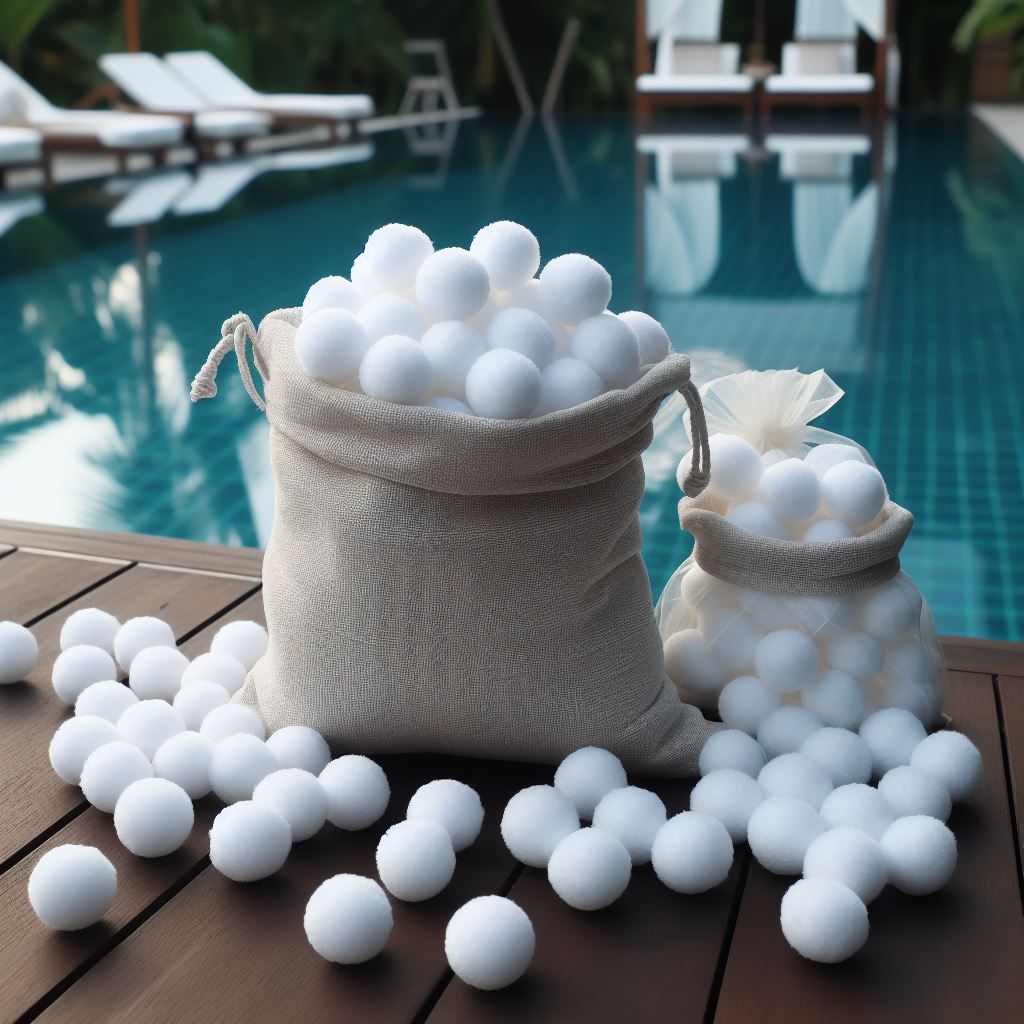Summer is here, and swimming pools have become our go-to place to beat the heat. However, keeping pool water clear and clean is no easy task. Pool filter balls are favored by many for their efficiency and eco-friendliness, but how long do they actually last? How often should they be replaced? Today, let’s delve into this topic in detail.
What are Pool Filter Balls?
First, we need to understand what filtration balls are. These filter balls are usually made from polyester fibers or other polymer materials. Their unique fiber structure captures impurities and fine particles in the water. Compared to traditional sand filters, sand filter balls offer higher filtration efficiency and relatively longer service life.
Types of Filter Balls on the Market
There are various types of filter balls for pools available on the market, differing in material, price, and effectiveness. Understanding these differences can help you choose the most suitable filter balls for your pool.
- Polyester Fiber Filter Balls: These are popular for their high filtration efficiency and durability. Polyester fibers can effectively capture fine particles, keeping the water clear.
- Recycled Material Filter Balls: Some filter balls are made from recycled materials, offering good filtration performance with an added environmental benefit, ideal for eco-conscious consumers.
- Various Sizes and Models: Choose filter balls of the appropriate size and model based on your pool’s size and filtration system requirements. Ensure that the number and size of the filter balls match the filter for optimal performance.
Lifespan of Filter Balls
Generally, high-quality filter balls for pools can last 2 to 3 years, but their exact lifespan depends on several factors:

- Water Quality: Poor water quality with lots of impurities and contaminants will shorten the filter balls’ lifespan as they need to capture and process these impurities more frequently, reaching their maximum capacity sooner.
- Usage Frequency: The frequency of pool usage is also an important factor. If your pool is used daily, the filter balls will need to work more frequently, thus shortening their lifespan.
- Maintenance: Regular maintenance and cleaning are key to extending the lifespan of filtration balls. If you clean the filter balls regularly to remove accumulated impurities, their lifespan will be significantly extended.
How to Extend the Lifespan of Pool Filter Balls
To ensure the best performance of filter balls for pools, daily maintenance is essential. Here are some practical tips to help you extend the filter balls’ lifespan:
- Regular Cleaning: It is recommended to thoroughly clean the filter balls once a month. The exact frequency can be adjusted based on pool usage. During cleaning, remove the filter balls and rinse them with clean water to remove surface dirt and deposits.
- Inspect the Filter: In addition to cleaning the filter balls, regularly check the filter’s operation. Ensure that the filter’s seals are intact to prevent water and air leaks that can affect filtration performance.
- Replace Filter Balls: Even with good maintenance, filter balls have a finite lifespan. If you notice poor filtration performance even after cleaning, it might be time to replace the filter balls.
How to Determine if Filter Balls Need Replacement?
You can determine if sand filter balls need replacement by considering the following aspects:
- Water Clarity: Clear water directly reflects the effectiveness of the filter balls. If the water becomes cloudy and the filtration effect is poor even after multiple cleanings, it might indicate that the filter balls have reached the end of their lifespan and need replacement.
- Water Flow Rate: A significant reduction in water flow might be due to clogged filter balls that can’t effectively filter impurities. If cleaning does not resolve the issue, the filter balls may have aged and need replacement.
- Filter System Pressure: Regularly check the pressure gauge of the filtration system. If the pressure is too high, it could indicate clogged filter balls, leading to poor water flow. If high pressure persists after cleaning, it means the filter balls need replacement.
Conclusion
Determining the lifespan and replacement frequency of pool filter balls requires a comprehensive evaluation from multiple aspects. By regularly testing water quality, properly maintaining filter balls, optimizing installation and usage, referring to user feedback, and addressing common issues, you can ensure that filter balls for pools perform optimally. We hope these tips help you better manage and maintain your pool, allowing you to fully enjoy clear and healthy pool water.

